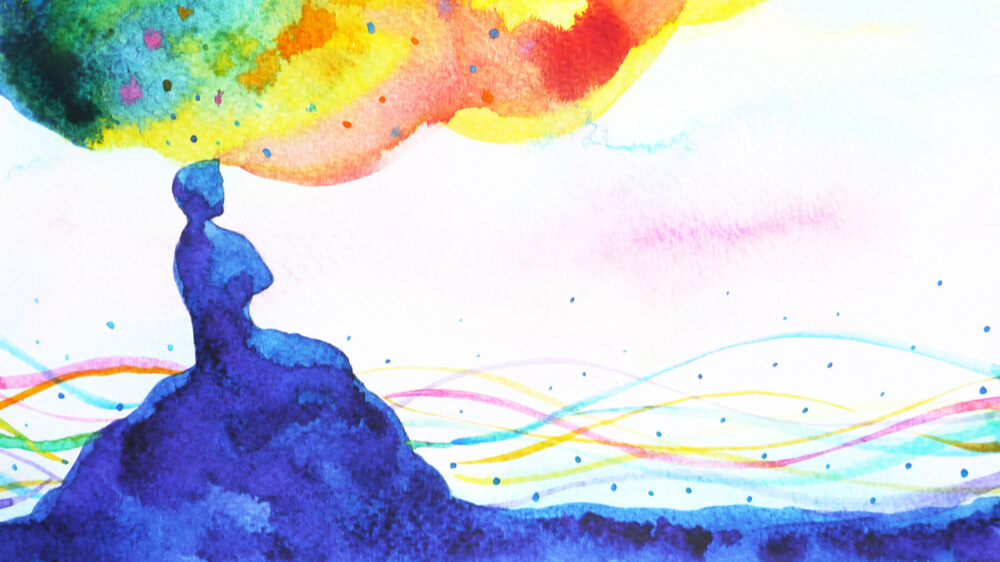Coping with Suicidal Ideation Among the Uncertainty of COVID-19
The following post is part of our series on perspectives from disabled and chronically ill people regarding COVID-19. This post is not intended as medical advice.
This post discusses suicide. If you or someone you know are in need of support, please reach out for support.
National Suicide Prevention Lifeline: 1-800-273-8255
En Español: 1-888-628-9454
For people who are deaf/hard-of-hearing: 1-800-799-4889
Crisis Text Line: Text HOME to 741741
My heart right now goes to a lot of folks experiencing suicidal ideation during this time of the coronavirus. The fact that we continue to wake up every day to face the amount difficulty this pandemic has brought upon us nationally and internationally is no small feat.
The amount of anxiety alone from the fear of contracting the virus and the anxiety from so many emails and reports coming out on how to take precaution is overwhelming. As media coverage of the virus continues to spew across our social media feeds, as people are impacted financially, as ongoing ableist and racist narratives we did not need or ask for continue to spread, struggling with suicidal ideation at this time comes as no surprise to me. Folks with chronic suicidal ideation are going through a lot more than many could ever realize.
At first, I didn’t want to let my anxiety “give in” to the charged narratives of panic that is harmful towards people of color like myself. However, I also believe it’s valid to be scared and to feel pain by how the systemic affects surrounding COVID-19 is affecting us. Last month, someone died by suicide after believing he had contracted the virus. As a suicide survivor, I don’t want to take this time for us lightly.
People may argue that suicidal ideation is a large leap, but currently, I’m struggling with paying my bills as a teaching artist whose gigs are getting cancelled. For the workshops that I haven’t cancelled, it’s been stressful to think about how to not cancel them while also validating people’s right to not attend them. And because of my finances, I’m having difficulty deciding whether to pay for my next therapy session to talk to my therapist about all these feelings. I don’t think it’s unfair of me to say that it’s hard for me to want to wake up in the morning knowing how difficult my life has been during all of this.
But right now, based on my personal experience, I want to name some ways to cope during this time if you’re struggling.
Take a break from social media and emails. I’m not saying it has to be too long, or that you need to make a post about you not being online. I am saying that it’s okay to not want to look at another headline about another case or another email about precautions. Personally, after sending my update emails and social media posts checking in on specific things, I turned my phone off for a few hours to watch Netflix with my partner. It was a nice time to breathe.
Reach out to someone. You can either contact a loved one or reach out to a hotline or online group about how you’re feeling and the support you may need during this time. My roommate and I were able to communicate to each other our needs, and we’re still in the process of coming up with a plan on how to continue following up with each other, but the fact that we’re having the conversation at all is enough for me. This may especially be helpful if you’re unable to afford a therapist. However, if you can find a therapist who can work with your rate and insurance (especially online), it may be helpful to have someone with an outside perspective support you.
Stay home. I know that I have felt the need to want to continue things as normal as possible by continuing making meetings or errands amidst the frustrating amount of cancellations. However, although it was hard for me to say no to an eight hour training and an early outing, it felt good to use that time to recuperate. There are also folks in my community creating online art events for people to participate in, which I’m grateful for during this time.
The world we’re living in right now still needs to be better in providing mental health supports, especially right now. Let’s get through this together as best as we can.
About Rooted In Rights
Rooted in Rights exists to amplify the perspectives of the disability community. Blog posts and storyteller videos that we publish and content we re-share on social media do not necessarily reflect the opinions or values of Rooted in Rights nor indicate an endorsement of a program or service by Rooted in Rights. We respect and aim to reflect the diversity of opinions and experiences of the disability community. Rooted in Rights seeks to highlight discussions, not direct them. Learn more about Rooted In Rights



